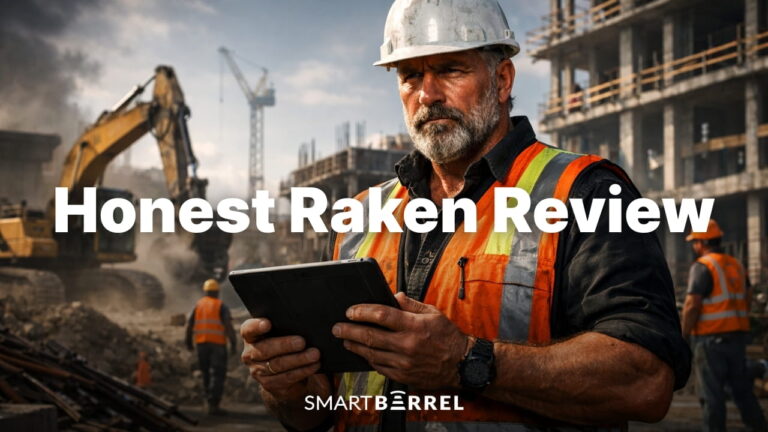Written by Riley Kaminer, a Miami-based technology researcher and writer. Originally published on Refresh Miami on August 12, 2025.
In a city known for crypto hype and AI experiments, SmartBarrel is building something far more tangible: a new foundation for construction labor management. And founder Albert Bou Fadel is doing it the hard way: in person.
While most tech companies embraced remote work after the pandemic, Bou Fadel made a different call. “We decided to continuously double down on Miami,” he told Refresh Miami. “We’re more productive when we’re in the same room. It’s day and night: the energy, the ideas, the collaboration. That creative spark just doesn’t happen on Slack.”
SmartBarrel’s platform combines hardware and software to help contractors track, manage, and pay their workers. It may not be a glamorous problem, but it’s a costly one – and ripe for innovation. Their biometric check-in system and on-site data capture tools help contractors manage everything from timekeeping and expenses to compliance and payroll. More than 50,000 workers are now tracked on SmartBarrel each day, across the U.S., Canada, and the Caribbean.
The Miami-based startup is small – just under 50 employees, half of whom are based in South Florida – but its ambitions are big. And it’s getting the fuel it needs to grow. In May, the company quietly raised a strategic round of just under $6 million to support its go-to-market push, bringing total funding to around $10.5 million.
But the biggest tailwind may be cultural. Contractors, long known for resisting tech, are finally warming up to it, thanks in part to tools like ChatGPT.
“It woke up a lot of dormant contractors to the power of computing,” Bou Fadel said. “It got them Googling terms like ‘AI for construction.’ It was the best education campaign we could’ve asked for.”
Still, adoption in the sector remains tricky. Bou Fadel doesn’t blame contractors, he blames software. “Tech failed construction for a long time. It was expensive, built by people who didn’t understand the field, and hard to implement,” he said. “So contractors developed a reputation for hating tech. But the truth is, they were burned by bad tools.”
Now, SmartBarrel is seizing on the shift. It’s already helping specialty trade contractors – think electrical, plumbing, and concrete – digitize their most painful workflows. Many of these companies have complex workforces: some W-2 employees, others from temp agencies, union shops, or public works projects with strict compliance requirements.
SmartBarrel’s tools automate all of it. “We manage the full lifecycle,” Bou Fadel explained. “From the moment a worker checks in to the moment payroll is processed, and all the messy compliance in between.”
Looking ahead, the company is focused on expanding from time tracking to productivity insights. That means layering in more sensors, automating more inputs, and using AI to turn raw data into real-time recommendations.
“We’re not here to guess who’s doing a good job,” Bou Fadel said. “We want to quantify it. If your team is averaging 1.3 doors per hour and you’ve got 100 doors left, we can tell you if you’re on track or not. And if not, here are three ways to fix it.”
This isn’t about replacing people, he insists. Rather, it’s about making better decisions. “Our goal is to build a copilot for construction labor management,” he said. “Not to take over the job, but to help you do it better.”
And if it all works? Miami might not just be where the company is based. It could be where the future of construction is being built: one timecard, one job site, one worker at a time.




